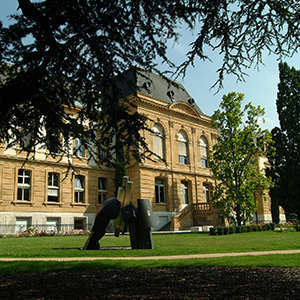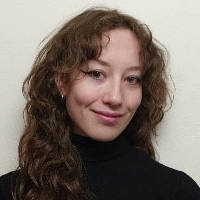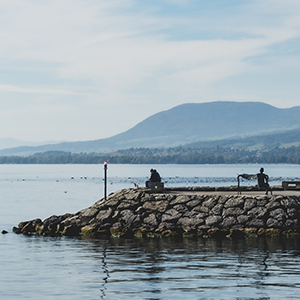Living in Neuchâtel: A guide for foreign students - 2
17.10.2023 | Vie sur le campus | Roxane Mazery
 You've just arrived in Neuchâtel. You may have started to settle into your new home and you are just beginning to discover the city. But there are a few things you need to consider before you can fully enjoy your new life in Switzerland. Here's a quick guide to your first steps in Neuchâtel.
You've just arrived in Neuchâtel. You may have started to settle into your new home and you are just beginning to discover the city. But there are a few things you need to consider before you can fully enjoy your new life in Switzerland. Here's a quick guide to your first steps in Neuchâtel.
Episode 2: First-days essentials
Settling in
Remember, before you left, you had to gather a nice pile of documents for your future administrative formalities. Now it's time to use them! Within 14 days after your arrival, you are required to go to the Residents' Registration Office to register your arrival. Make sure you have all the documents you need to obtain your residence permit. You don't need to book an appointment, and you can come to their counter at any time during their opening hours. Within a few weeks, you'll then receive a letter or e-mail inviting you to an appointment to collect your biometric data, and you'll receive your permit some time later. Delays are usually quite long at the start of the school year, so don't panic if you don't hear back from your permit right away. You'll normally get a B permit, or an L permit if you're only staying for a semester. If you have any doubts or problems, don't hesitate to ask any questions you may have at the Residents' Registration Office or the Migration Service. You can also try calling or emailing them, but response times are considerably longer.
Then comes the question of health insurance. If you already have mandatory health insurance in your home country, which is equivalent to Swiss insurance, you don't need to obtain insurance here. This is generally the case for European countries, and you must send a copy of your insurance certificate or European health insurance card and your university registration certificate to the OCAM (the office in charge of insurance) within 3 months after your arrival, by e-mail or post. If your health insurance is not valid in Switzerland, you'll need to take out a special insurance policy for foreign students. These insurances are relatively inexpensive, and you'll find a list of them on the UniNE website. You will also need to send a certificate of this insurance to the OCAM.
You're also likely to need a Swiss phone plan. If you don't want to pay a fortune, don't rush off to the first phone store you come across, but take a good look at the comparisons on the Internet, where you'll find some very interesting offers at affordable prices. However, pay attention to the length of the contract and the terms and conditions at the bottom of the page: cheap packages can sometimes hide restrictive conditions.
When it comes to transport, you can also save money. Firstly, subscribing to the Half-Fare travelcard is very advantageous: it allows you to halve the price of all your journeys, whatever the means of transport, for only around a hundred francs a year. If you're under 25, you can also get a very attractive discount on the Ondes Vertes pass (for urban transport in Neuchâtel). You also have access to the AG Night, which allows you to travel freely from 7pm to 5am on weekdays and 7am at weekends, for 99 francs a year.
Finally, you'll certainly need to open a bank account at a Swiss bank, especially if you're staying for more than a semester and plan to get a student job. You can go to the bank of your choice with your ID and residence permit, or alternatively the document provided in the meantime, and an advisor will help you open your account. On the Internet, you can compare the offers available to students and choose the bank that's best for you.
University
Finally, you've got the paperwork out of the way. Well, almost! You still have to go to the university Immatriculations office. You'll need to present the original of your Bachelor's diploma (or any other diploma required for the studies you're about to begin) and some form of ID. Your student card will be given to you at this point. A welcome day is also organized for new students before the start of classes: find out about the timetable for your degree. It's important to attend this day, where you'll be given all the information you need about your studies and how the university works.
If you'd like to improve your French, you can find out more about the university's "Français midi" program, which gives you free French lessons at lunchtime. There are courses for every level, and some can even get you extra ECTS credits. The university's language center also offers courses in English, German, Spanish and Italian.
If you're a sports fan, the SUN offers a wide range of sports activities, with free or very low-cost sessions. Most activities require no registration, and you're free to join in. You'll find all the information you need on their website.
Things to know
A few final tips to make the most of your first few days. Stores in Switzerland close relatively early (7 or 8 p.m. on weekdays and 6 p.m. on Saturdays) so check the timetables carefully and make sure you do your shopping early :) However, the station does have stores open in the evenings and on Sundays, which is always useful to know. Canton services also have particular opening hours, with some offices open only in the morning or closing early in the afternoon.
If you have free time, take advantage of your first few days to visit the city. You can take a stroll along the streets, swim in the lake, visit the castle, take the funicular to admire the view from Chaumont, go to the Saturday morning market, have a drink at the Café du Cerf, eat a crêpe at Bach&Buch... If you'd like to find some company for your first explorations and make new friends, we strongly advise you to go to the activities organized by the ESN (Erasmus Student Network) association, especially the welcome activities. There's also a Whatsapp group specifically for foreign students in Neuchâtel: you can get the link by contacting ESN, on Instagram or Facebook. Don't hesitate to follow the university's various student associations on social media to stay updated on planned events and parties.
Finally, if you're just beginning to speak French, or if you're not quite sure of yourself, speak up! Put your discomfort aside and force yourself to practice your skills in everyday life, even if they're very basic. Speak French in the stores, with your roommates, at university - don't be afraid to make mistakes. The more you speak, the more confident you'll feel and the faster you'll progress. And the locals will be delighted to help and/or correct you if you wish!
Links
Documentation to provide for the residence permit, non-european students :
Documentation to provide for the residence permit, european students :
Contact and schedule for the OCAM :
Insurance :
Public transports :
Français midi :
SUN :
Website of ESN Neuchâtel with links to their Instagram and Facebook accounts :
Toutes les catégories
Biographie

Roxane Mazery
Étudiante en Master en journalisme et communication, Orientation création de contenus et communication d’intérêt général (MA3CIG)
Posts en relation

| 03.10.2023 | Vie sur le campus
Vivre à Neuchâtel : un guide pour les étudiant-e-s étranger-ères - 1 - Lire le post >

| 17.10.2023 | Vie sur le campus
Vivre à Neuchâtel : un guide pour les étudiant-e-s étranger-ères - 3 - Lire le post >


